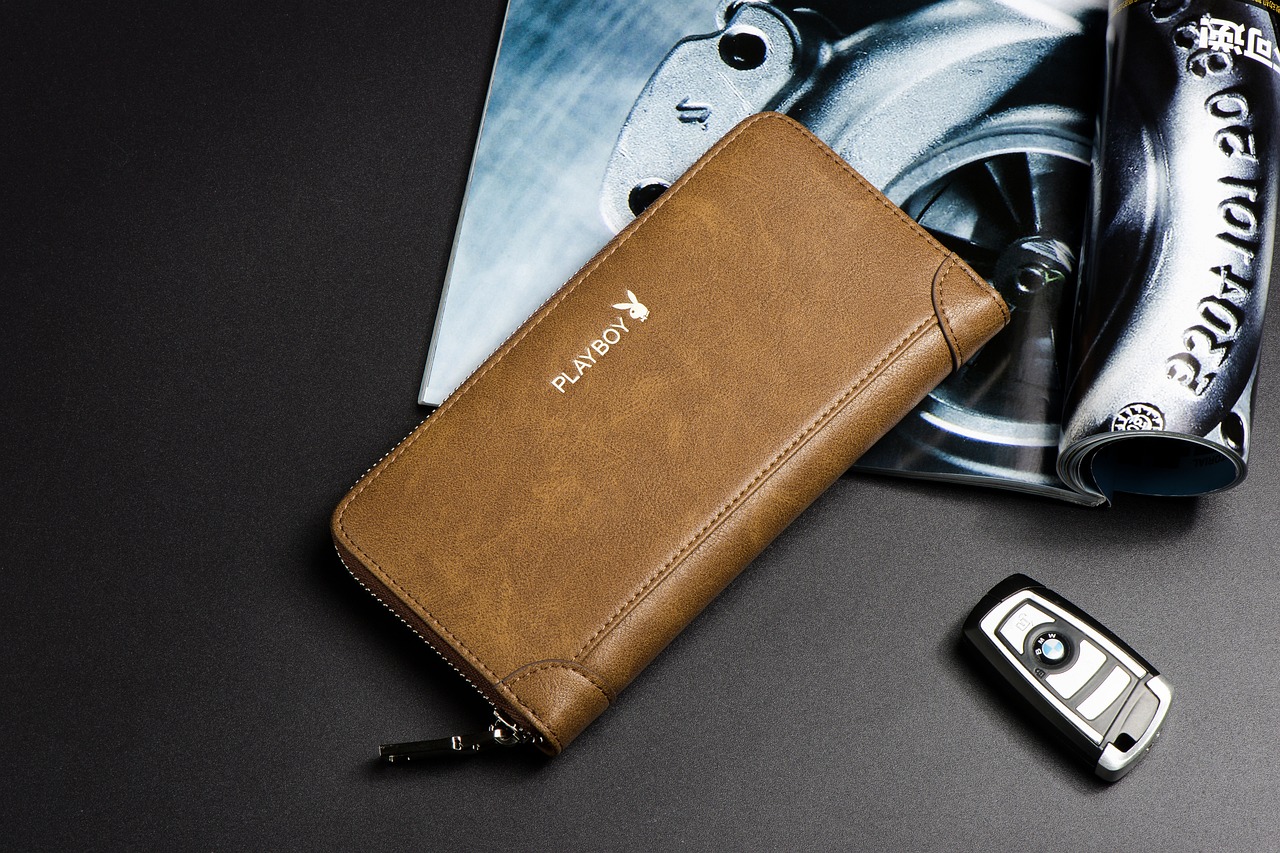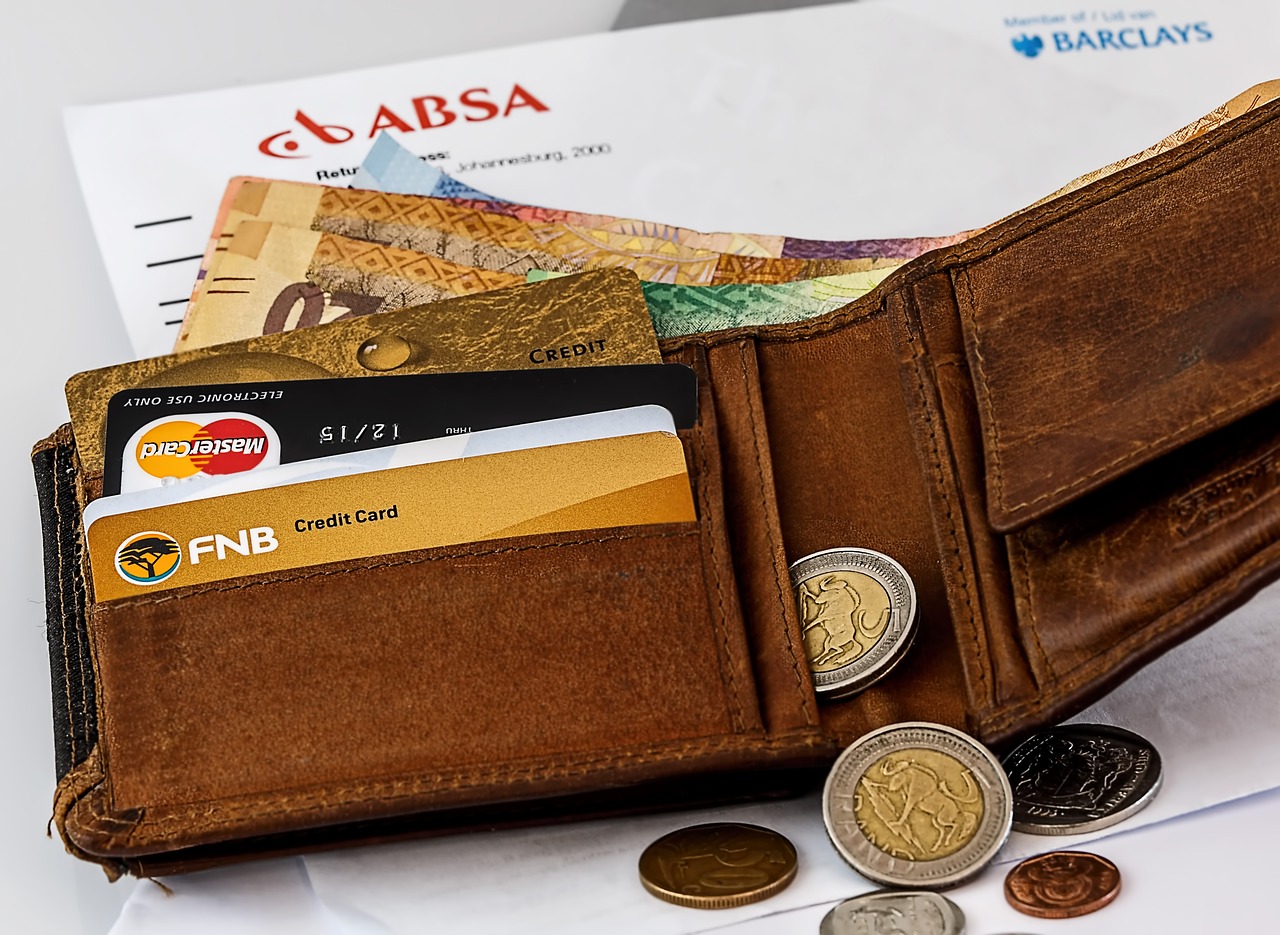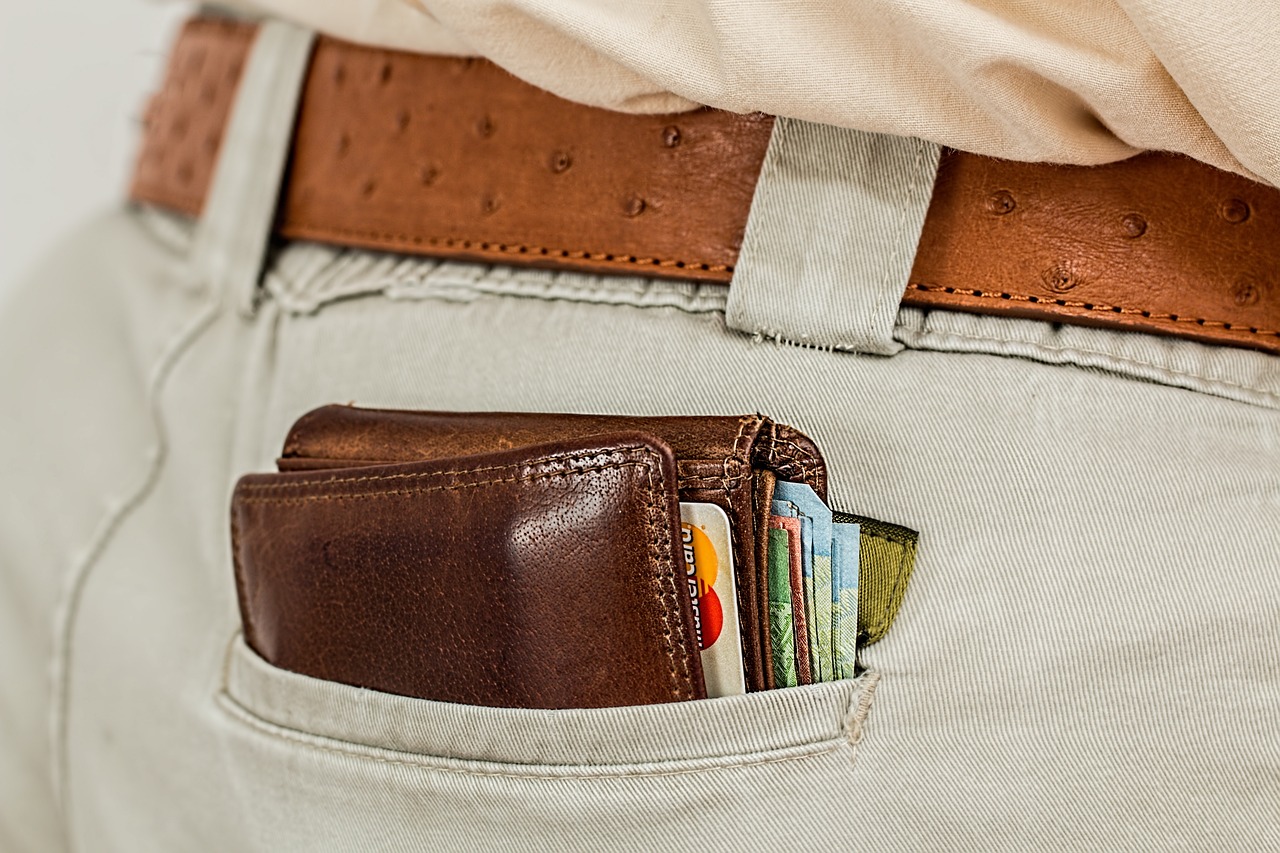Exploring the Differences Between Bitcoin and Altcoin Wallets
In the ever-evolving world of cryptocurrency, understanding the nuances between Bitcoin and altcoin wallets is crucial for anyone looking to dip their toes into this digital ocean. While Bitcoin is often hailed as the pioneer of cryptocurrencies, altcoins such as Ethereum, Litecoin, and Ripple have emerged, each with unique features and functionalities. But what exactly sets their wallets apart? This article delves into the unique features and functionalities of Bitcoin and altcoin wallets, highlighting their differences, advantages, and security measures to help users make informed choices for their cryptocurrency storage.
When it comes to cryptocurrency wallets, variety is the name of the game. Different types of wallets exist for Bitcoin and altcoins, including hardware wallets, software wallets, and paper wallets. Each type offers distinct advantages and disadvantages depending on user preferences and security needs. For instance, hardware wallets are often considered the safest option because they store your private keys offline, away from potential online threats. On the other hand, software wallets provide more convenience and accessibility, making them ideal for everyday transactions. Paper wallets, while secure, can be cumbersome for frequent use. In essence, the choice of wallet type can greatly impact your overall cryptocurrency experience.
Security is paramount in cryptocurrency storage. With the rise of digital assets, the need for robust security measures has never been more critical. This section explores the various security features found in Bitcoin and altcoin wallets, including encryption, two-factor authentication, and backup options to safeguard digital assets. Encryption helps protect your wallet data from unauthorized access, while two-factor authentication adds an extra layer of security by requiring a second form of verification. Backup options ensure that even if you lose access to your wallet, you can still recover your funds. With these features in place, users can enjoy peace of mind knowing their investments are protected.
Understanding the role of private and public keys is essential for wallet security. Public keys act like your bank account number; they can be shared with others to receive funds. In contrast, private keys are akin to your password; they must be kept secret at all costs. If someone gains access to your private key, they can control your funds. This section explains how these keys function and their significance in maintaining control over funds in Bitcoin and altcoin wallets. It's crucial to remember that security begins with how you manage your keys, so always prioritize their safety.
Effective key management is crucial for preventing unauthorized access. Best practices for managing private keys include secure storage methods, such as using hardware wallets or encrypted digital storage, and recovery strategies in case of loss. For instance, writing down your private key and storing it in a safe place can be a good backup plan. Additionally, consider using a password manager to keep track of your keys securely. The more diligent you are with your key management, the less likely you are to face financial losses.
Users must be aware of potential security risks associated with wallets. Common threats include phishing attacks, where malicious actors trick users into revealing their private keys, and malware that can compromise wallet security. To mitigate these risks, always ensure you are using secure internet connections, verify the authenticity of wallet software, and never share your private keys with anyone. By staying informed and vigilant, you can significantly reduce the chances of falling victim to these threats.
Transaction fees can vary significantly between Bitcoin and altcoin wallets. Understanding how these fees are determined is essential for users looking to optimize their costs. Factors such as network congestion and the size of your transaction in bytes can influence the fees you pay. In general, Bitcoin transaction fees tend to be higher due to its widespread use and limited block size. Altcoins, on the other hand, may offer lower fees, making them attractive for smaller transactions. By being aware of these differences, users can make smarter choices when sending cryptocurrencies.
The user experience can differ widely between Bitcoin and altcoin wallets. Some wallets prioritize a sleek and intuitive interface, while others may offer advanced features that can be overwhelming for novice users. It’s vital to choose a wallet that aligns with your comfort level and technical expertise. For instance, if you’re new to crypto, a wallet with a user-friendly interface can make the learning curve less steep. Conversely, experienced users may prefer wallets that offer more customization and advanced functionalities.
Mobile and desktop wallets serve different user needs. Mobile wallets are designed for convenience, allowing you to make transactions on the go. However, they may be more susceptible to security risks if not properly secured. Desktop wallets, while generally more secure, can be less convenient for quick transactions. When choosing between the two, consider factors like convenience, security, and functionality for managing your cryptocurrencies. Ultimately, the best wallet is one that fits seamlessly into your lifestyle.
Integration with cryptocurrency exchanges can enhance wallet usability. Some wallets allow for seamless transactions between your wallet and exchange accounts, making it easier to trade and manage your assets. This feature can save time and reduce the complexity of transferring funds between different platforms. When selecting a wallet, consider whether it offers integration with the exchanges you plan to use, as this can significantly improve your overall trading experience.
- What is the safest type of cryptocurrency wallet? Hardware wallets are generally considered the safest option for storing cryptocurrencies.
- Can I use a Bitcoin wallet for altcoins? Some wallets support multiple cryptocurrencies, but it's best to use wallets specifically designed for each type.
- How do I recover my wallet if I lose my private key? If you lose your private key without a backup, you may lose access to your funds permanently.

Understanding Wallet Types
When diving into the world of cryptocurrencies, one of the first things you’ll encounter is the concept of wallets. But what exactly are these wallets? Think of them as digital safes where you can store your precious cryptocurrencies, just like you would keep cash in a physical wallet. However, not all wallets are created equal, and understanding the different types is crucial for anyone looking to securely manage their digital assets.
There are mainly three types of wallets available for Bitcoin and altcoins: hardware wallets, software wallets, and paper wallets. Each type has its unique features, pros, and cons that cater to varying user needs and preferences. Let's break them down a bit further.
Hardware wallets are physical devices that securely store your private keys offline. This is akin to keeping your cash in a safe deposit box at the bank. Because they are not connected to the internet, they are less susceptible to hacking attempts. Popular examples include the Ledger Nano S and Trezor. While they offer top-notch security, users must be cautious about losing the device or forgetting their PIN, as recovery can be complex.
On the other hand, software wallets come in two flavors: desktop and mobile wallets. Desktop wallets are installed on your computer, offering a balance between security and convenience. They are relatively easy to use and provide a good user experience. However, being connected to the internet makes them more vulnerable to cyber threats. Mobile wallets, accessible via smartphones, are fantastic for everyday transactions, allowing users to pay for goods and services with just a few taps. Yet, their reliance on internet connectivity also poses security risks.
Lastly, we have paper wallets. This type is the most basic yet can be incredibly secure if done right. A paper wallet involves printing your public and private keys on a piece of paper and storing it in a safe place. Imagine writing down your bank account details and locking them in a safe; that’s the essence of a paper wallet. However, if you lose the paper or if it gets damaged, your funds are irretrievable. Therefore, while they are immune to online threats, they require careful handling.
In summary, the choice of wallet type largely depends on your individual needs:
- If you prioritize security and have significant holdings, a hardware wallet might be your best bet.
- If you seek convenience and frequent access, consider a mobile wallet.
- For long-term storage without the risk of online attacks, a paper wallet could be suitable.
Ultimately, understanding these wallet types and their functionalities will empower you to make informed decisions about how to store and manage your cryptocurrencies safely. Whether you’re a seasoned trader or a newbie, knowing the right wallet for your needs can make all the difference in your cryptocurrency journey.

Security Features
When it comes to cryptocurrency, security is not just a feature—it's a necessity. The digital landscape can be a treacherous place, and the last thing you want is to lose your hard-earned Bitcoin or altcoins due to a security breach. Whether you're a seasoned trader or a newcomer to the crypto world, understanding the security features of wallets is crucial. Bitcoin wallets and altcoin wallets may have some commonalities, but they also come with unique security measures tailored to their specific ecosystems.
One of the most important security features to consider is encryption. Most wallets use advanced encryption techniques to protect your private keys and transaction data. This means that even if a hacker gains access to your wallet, they won't be able to decipher your information without the correct decryption key. Additionally, many wallets offer two-factor authentication (2FA), which adds an extra layer of security. With 2FA, you'll need to verify your identity through a secondary method, such as a text message or authentication app, before you can access your funds. This makes it significantly harder for unauthorized users to gain access.
Another vital aspect of wallet security is the backup options. Most wallets allow you to create a backup of your private keys or seed phrase, which is essential for recovery in case you lose access to your wallet. This backup can often be stored in multiple formats, such as a physical copy or a secure cloud service. However, it’s essential to keep this backup safe; otherwise, it could become a double-edged sword. If someone else gains access to your backup, they can easily take control of your assets.
To give you a clearer picture, let’s compare some common security features between Bitcoin and altcoin wallets:
| Security Feature | Bitcoin Wallets | Altcoin Wallets |
|---|---|---|
| Encryption | Standardized, often high-level encryption | Varies by wallet, generally good |
| Two-Factor Authentication | Widely available | Available but not universal |
| Backup Options | Seed phrases and private key backups | Similar, but some may lack cloud options |
While these security features are essential, users must also be aware of common security risks. Phishing attacks, for instance, are a prevalent threat where malicious actors trick users into providing their private keys or login credentials. Always be cautious of unsolicited emails or messages that ask for sensitive information. Additionally, malware can compromise your device, making it crucial to have updated antivirus software and to download wallets only from reputable sources.
In summary, understanding the security features of both Bitcoin and altcoin wallets can significantly enhance your ability to protect your digital assets. By leveraging encryption, two-factor authentication, and effective backup strategies, you can minimize your risk and enjoy the benefits of cryptocurrency with greater peace of mind.

Private vs. Public Keys
When diving into the world of cryptocurrency, one of the first concepts you'll encounter is the distinction between private and public keys. Think of these keys as the locks and keys to your digital treasure chest. The public key acts like your email address; it's something you can share with others so they can send you cryptocurrencies. On the other hand, your private key is akin to your password—it's something that should remain a closely guarded secret. If someone gains access to your private key, they can control your funds and essentially make off with your assets.
Let’s break it down further. The public key is derived from the private key through a cryptographic process. This means that while anyone can generate a public key from a private key, the reverse is not possible. This one-way relationship ensures that your funds are secure as long as your private key remains confidential. In essence, your public key is like a mailbox where people can send you letters (cryptocurrency), but only you have the key to open that mailbox and read those letters (access your funds).
To illustrate the importance of these keys, consider the following table:
| Key Type | Function | Security |
|---|---|---|
| Public Key | Used to receive funds | Can be shared with anyone |
| Private Key | Used to send funds | Must be kept secret |
Understanding the roles of these keys is crucial for maintaining control over your cryptocurrency. It's not just about having them; it's about knowing how to protect them. For instance, if you store your private key on an unsecured device or share it with someone, you're essentially handing over the keys to your digital kingdom. This is why key management is a vital practice for anyone involved in cryptocurrency.
In summary, the relationship between private and public keys is foundational to the security and functionality of cryptocurrency wallets. By keeping your private key safe and using your public key wisely, you can navigate the crypto landscape with confidence. Remember, in the world of digital currencies, your keys are your lifeline—guard them fiercely!

Key Management Practices
When it comes to cryptocurrency, managing your private keys is akin to safeguarding your treasure map. If the map falls into the wrong hands, you could lose everything. Thus, effective key management practices are crucial for preventing unauthorized access to your digital assets. One of the most fundamental practices is to store your private keys in a secure location. This might mean using a hardware wallet, which keeps your keys offline and away from potential online threats. Think of it as putting your gold in a safe instead of leaving it out in the open.
Another essential practice is to create backups of your keys. Imagine losing access to your wallet due to a hardware failure or accidental deletion. Having a backup ensures that you can recover your funds even in dire circumstances. Many wallet providers offer options to create seed phrases, which are a series of words that can restore your wallet. It's crucial to write these down and store them in a secure place, away from prying eyes. Just like you wouldn’t leave your house key under the doormat, don’t leave your seed phrase in an easily accessible spot.
Moreover, consider employing multi-signature wallets for added security. This setup requires multiple keys to authorize a transaction, making it much harder for hackers to gain access. It’s like requiring multiple keys to unlock a safe; even if one key is compromised, the treasure remains secure. Additionally, regularly updating your security practices is vital. Stay informed about the latest threats and adjust your strategies accordingly. After all, the world of cryptocurrency is constantly evolving, and so should your defense mechanisms.
In summary, effective key management involves:
- Secure storage: Use hardware wallets or similar secure methods.
- Backups: Create and securely store seed phrases or backup files.
- Multi-signature wallets: Employ additional layers of security.
- Regular updates: Stay informed about new security threats and practices.
By implementing these key management practices, you can significantly reduce the risk of losing your valuable cryptocurrencies. Remember, in the world of crypto, knowledge is power, and the right practices can make all the difference in protecting your assets.
Q1: What is a private key?
A private key is a secret number that allows you to access and manage your cryptocurrency. It must be kept confidential, as anyone with access to it can control your funds.
Q2: How do I back up my wallet?
You can back up your wallet by creating a seed phrase or exporting your private keys to a secure location. Make sure to store this backup in a safe place, such as a safe or a bank deposit box.
Q3: What is a multi-signature wallet?
A multi-signature wallet requires multiple private keys to authorize a transaction, enhancing security. It’s particularly useful for businesses or individuals who want to add an extra layer of protection to their funds.

Common Security Risks
When diving into the world of cryptocurrency, understanding the associated with wallets is crucial for safeguarding your assets. Just like locking your front door to keep intruders out, you need to be aware of the potential threats lurking in the digital shadows. One of the most prevalent risks is phishing attacks. These deceptive tactics often involve fake emails or websites that mimic legitimate services, tricking users into revealing their private keys or login credentials. Imagine receiving an email from what looks like your wallet provider, only to discover it was a clever ruse designed to steal your funds.
Another significant threat is malware. This malicious software can infect your devices, allowing hackers to gain unauthorized access to your wallet. Just as you wouldn’t leave your computer unprotected, it’s essential to have robust antivirus software and to be cautious about the links you click. Additionally, be wary of downloading applications from untrusted sources, as they may contain hidden malware designed to compromise your wallet.
Moreover, social engineering tactics can also pose a risk. Scammers often exploit human psychology to manipulate individuals into divulging sensitive information. For example, they may pose as tech support and ask for your wallet details under the guise of troubleshooting an issue. Always remember to verify identities and never share your private keys with anyone.
In the world of cryptocurrency, the importance of secure backups cannot be overstated. Losing access to your wallet due to a hardware failure or accidental deletion can be devastating. It's vital to have a backup strategy that includes securely storing recovery phrases and ensuring that they are kept in a safe place, away from prying eyes.
To summarize, here are some common security risks to keep in mind:
- Phishing Attacks: Deceptive emails or websites designed to steal your credentials.
- Malware: Malicious software that can infect devices and compromise wallets.
- Social Engineering: Manipulative tactics to trick users into revealing sensitive information.
- Loss of Access: Risks associated with not having secure backups of wallet information.
By being aware of these risks and taking proactive measures, you can significantly enhance your wallet security and protect your cryptocurrency investments. Remember, in the digital currency landscape, vigilance is your best defense!
1. What is a phishing attack?
A phishing attack is a fraudulent attempt to obtain sensitive information by disguising as a trustworthy entity in electronic communications.
2. How can I protect my wallet from malware?
To protect your wallet from malware, ensure you have reliable antivirus software installed, avoid clicking on suspicious links, and only download applications from trusted sources.
3. What should I do if I suspect a phishing attempt?
If you suspect a phishing attempt, do not provide any personal information. Report the incident to the relevant authorities and change your passwords immediately.
4. Why are backups important for cryptocurrency wallets?
Backups are crucial because they allow you to recover your wallet in case of hardware failure, accidental deletion, or other unforeseen issues. Always keep your recovery phrases secure.

Transaction Fees
When it comes to the world of cryptocurrencies, understanding is crucial for anyone looking to send or receive digital assets. These fees can vary significantly between Bitcoin and altcoin wallets, and knowing how they work can save you a pretty penny in the long run. But what exactly determines these fees? Well, it boils down to a few key factors, including network congestion, the size of the transaction, and the specific cryptocurrency in question.
For Bitcoin transactions, fees are often based on the size of the transaction in bytes rather than the amount being sent. This means that if you’re sending a large amount in a single transaction, the fee may not be as high as when sending smaller amounts in multiple transactions. On the other hand, altcoins like Ethereum have their own unique fee structures, often calculated based on gas prices and the complexity of the transaction. It’s essential to keep an eye on these factors, especially during times of high network activity when fees can skyrocket.
Take a look at the table below to get a clearer picture of how transaction fees can vary between Bitcoin and some popular altcoins:
| Cryptocurrency | Average Transaction Fee | Fee Structure |
|---|---|---|
| Bitcoin (BTC) | $1 - $5 | Size in bytes |
| Ethereum (ETH) | $0.50 - $10 | Gas prices |
| Litecoin (LTC) | $0.01 - $0.50 | Size in bytes |
| Ripple (XRP) | $0.00001 | Flat fee |
As you can see, transaction fees can differ greatly not only between Bitcoin and altcoins but also among various altcoins themselves. This variability can have a significant impact on your overall costs, especially if you plan to make frequent transactions. So, how can you optimize your costs when sending cryptocurrencies? Here are a few tips:
- Timing is key: Monitor network congestion and try to send transactions during off-peak hours when fees are lower.
- Batch transactions: If possible, consolidate multiple transactions into one to save on fees.
- Use fee estimation tools: Many wallets and exchanges offer tools to help you estimate the best fee for your transaction.
By keeping these strategies in mind, you can navigate the often-complex world of cryptocurrency transaction fees more effectively. Remember, whether you're sending Bitcoin or an altcoin, understanding how fees work can make a significant difference in your overall experience and financial outcomes.
What factors influence transaction fees for cryptocurrencies?
Transaction fees are influenced by network congestion, the size of the transaction in bytes, and the specific cryptocurrency being used.
How can I reduce my transaction fees?
You can reduce your transaction fees by sending transactions during off-peak hours, batching multiple transactions, and using fee estimation tools provided by wallets and exchanges.
Do all wallets have the same transaction fees?
No, transaction fees can vary between wallets based on their fee structure and the cryptocurrency being sent. It's always a good idea to compare fees before making a transaction.

User Experience and Interface
When it comes to cryptocurrency wallets, the user experience (UX) and interface design can make or break your interaction with your digital assets. Imagine walking into a store where everything is chaotic; you’d probably want to leave, right? Well, the same goes for wallets. A well-designed wallet makes it easy for both novices and seasoned traders to navigate the complex world of cryptocurrencies. The goal is to create an environment where users feel comfortable and in control of their funds.
One of the most critical factors in user experience is the interface layout. A clean, intuitive design allows users to find what they need quickly without feeling overwhelmed. For instance, the dashboard should display essential information like balance, recent transactions, and available features prominently. If you have to dig through layers of menus to find your transaction history, it can be frustrating. This is why many wallets focus on a minimalist approach, prioritizing essential functions while keeping the interface uncluttered.
Moreover, the accessibility of a wallet is vital. Some wallets are designed with specific user groups in mind. For example, mobile wallets cater to users who prefer to manage their cryptocurrencies on the go, while desktop wallets may offer more robust features for advanced trading. Each type has its own set of advantages and disadvantages:
| Wallet Type | Advantages | Disadvantages |
|---|---|---|
| Mobile Wallets | Convenience, easy access, and quick transactions | Potential security risks if the device is compromised |
| Desktop Wallets | More features, better security options | Less convenient for on-the-go transactions |
Another aspect of user experience is the customer support provided by wallet services. Imagine facing an issue with your wallet and having no one to turn to for help. High-quality customer support can significantly enhance the overall experience. Wallets that offer multiple support channels—like live chat, email, and comprehensive FAQs—tend to build trust with their users. It’s like having a knowledgeable friend guide you through the complexities of the crypto world.
Lastly, let’s not forget about the educational resources that some wallets provide. A good wallet doesn't just store your coins; it also empowers you with knowledge. Many wallets include tutorials, articles, and tips on how to use their platform effectively. This is particularly beneficial for newcomers who might feel lost in the sea of cryptocurrency jargon. It’s akin to having a roadmap when you’re exploring uncharted territory.
In conclusion, the user experience and interface of a cryptocurrency wallet play a pivotal role in how users interact with their digital assets. A wallet that prioritizes intuitive design, accessibility, strong customer support, and educational resources not only attracts users but also keeps them engaged. After all, in the fast-paced world of cryptocurrency, having a wallet that feels comfortable and easy to use can make all the difference.
- What should I look for in a cryptocurrency wallet? Look for ease of use, security features, and customer support.
- Are mobile wallets safe? While they offer convenience, ensure you follow security best practices to protect your device.
- Can I use the same wallet for Bitcoin and altcoins? Some wallets support multiple cryptocurrencies, but always check compatibility.

Mobile vs. Desktop Wallets
When it comes to managing your cryptocurrency, the choice between mobile and desktop wallets can feel like a daunting decision. Each type of wallet offers its own set of advantages and disadvantages, and understanding these differences is crucial for anyone looking to securely store their digital assets. Mobile wallets are designed for convenience, allowing you to access your cryptocurrencies on the go. Imagine being able to make a quick transaction while you're out and about, whether that's buying coffee or splitting a bill with friends. This immediacy can be incredibly appealing, especially for those who value flexibility in their financial transactions.
On the flip side, desktop wallets often provide enhanced security features and a more robust user experience. Think of a desktop wallet as your personal vault, where you can store your digital currency with a higher level of protection against potential threats. Since they are installed on your computer, they can leverage the device's processing power to manage transactions more efficiently and securely. However, this setup means that you need to be more vigilant about your computer's security, ensuring that your system is free from malware and other vulnerabilities.
To help you understand the key differences, let’s take a look at some of the primary factors to consider when choosing between mobile and desktop wallets:
| Feature | Mobile Wallets | Desktop Wallets |
|---|---|---|
| Accessibility | Highly accessible; can be used anywhere | Less portable; requires a computer |
| Security | Generally less secure; susceptible to theft if the device is lost or stolen | More secure; but dependent on the security of the computer |
| User Experience | Designed for quick transactions; user-friendly interface | More complex; better for managing larger amounts |
| Backup Options | Often include cloud backup features | Usually requires manual backup processes |
Ultimately, the choice between a mobile and desktop wallet will depend on your individual needs and lifestyle. If you prioritize convenience and quick access to your funds, a mobile wallet might be the way to go. However, if you’re more concerned about security and managing larger amounts of cryptocurrency, a desktop wallet may be the better option. Many users even opt for a combination of both, keeping smaller amounts in a mobile wallet for everyday use while storing the bulk of their assets in a more secure desktop wallet.
- What is the safest type of wallet? The safest type of wallet is generally considered to be a hardware wallet, as it stores your private keys offline.
- Can I use both mobile and desktop wallets? Absolutely! Many users find it beneficial to use both types for different purposes.
- Are mobile wallets secure? While mobile wallets are convenient, they can be less secure than desktop wallets. Always ensure your device is protected with strong passwords and up-to-date software.
- How do I backup my wallet? Backup methods vary by wallet type; typically, they involve exporting your private keys or seed phrase.

Wallet Integration with Exchanges
When it comes to managing cryptocurrencies, plays a pivotal role in enhancing user experience. Imagine having the ability to seamlessly trade your digital assets without the hassle of transferring them back and forth between different platforms. This integration not only simplifies the trading process but also allows users to maintain better control over their investments. So, how does this work, and why should you care?
Most cryptocurrency wallets today, whether they are Bitcoin or altcoin wallets, offer some level of integration with exchanges. This means that users can buy, sell, and trade cryptocurrencies directly from their wallets without needing to log into an exchange platform separately. This feature is particularly beneficial for those who are actively trading, as it saves time and reduces the risk of missing out on market opportunities due to delays.
Additionally, the integration often comes with enhanced security features. For example, many wallets allow users to link their accounts securely using API keys, which provide a layer of protection while enabling functionalities like real-time price tracking and order placement. However, it’s crucial to choose wallets and exchanges that prioritize security, as the cryptocurrency space is rife with potential threats.
One of the most significant advantages of wallet integration is the ability to manage multiple cryptocurrencies in one place. Users can easily switch between different coins, view their balances, and execute trades without the need to juggle between various platforms. This is particularly useful for those who hold a diverse portfolio of assets, as it streamlines the entire process.
Let’s take a look at a comparison of some popular wallets and their integration capabilities with exchanges:
| Wallet Name | Supported Exchanges | Integration Features |
|---|---|---|
| Exodus | Binance, Kraken | In-app trading, portfolio tracking |
| Trust Wallet | Binance DEX, PancakeSwap | Direct token swaps, staking options |
| Coinbase Wallet | Coinbase | Easy transfer to exchange, built-in DEX |
However, while wallet integration with exchanges offers numerous benefits, it’s essential to remain vigilant. Users should be aware of the potential risks involved, such as phishing attacks and the possibility of exchange hacks. Always ensure that you are using reputable wallets and exchanges, and consider enabling additional security measures like two-factor authentication (2FA) to further protect your assets.
In conclusion, wallet integration with exchanges is a game-changer for cryptocurrency users. It not only simplifies the trading process but also enhances security and convenience. As the cryptocurrency landscape continues to evolve, keeping an eye on wallet features and integrations will be crucial for anyone looking to navigate this exciting digital frontier.
- What is wallet integration with exchanges?
Wallet integration with exchanges allows users to trade cryptocurrencies directly from their wallets without needing to log into separate exchange platforms. - Are integrated wallets safer than traditional wallets?
While integrated wallets offer convenience, security depends on the wallet and exchange's reputation. Always prioritize security features. - Can I manage multiple cryptocurrencies in one wallet?
Yes, many wallets support multiple cryptocurrencies and allow for easy switching and trading between them.
Frequently Asked Questions
- What is the main difference between Bitcoin and altcoin wallets?
Bitcoin wallets are specifically designed to store Bitcoin, while altcoin wallets can store various other cryptocurrencies. The main difference lies in their compatibility with different blockchain networks and the types of coins they support.
- What types of wallets are available for Bitcoin and altcoins?
There are several types of wallets available, including hardware wallets, software wallets (which can be further categorized into desktop and mobile wallets), and paper wallets. Each type offers unique advantages, such as enhanced security or ease of access, depending on user needs.
- How can I ensure the security of my cryptocurrency wallet?
To secure your wallet, consider using wallets with strong encryption, enable two-factor authentication, and regularly back up your wallet data. Additionally, practicing safe key management, like keeping your private keys offline, can significantly reduce the risk of unauthorized access.
- What are private and public keys, and why are they important?
Private keys are secret codes that allow you to access and manage your cryptocurrency, while public keys are like your bank account number that others can use to send you funds. Understanding these keys is crucial for maintaining control over your digital assets and ensuring their security.
- What are the common security risks associated with cryptocurrency wallets?
Common risks include phishing attacks, malware, and the potential for hardware failures. It's essential to stay vigilant and take preventive measures, such as avoiding suspicious links and keeping your software up to date, to mitigate these risks.
- How are transaction fees determined in Bitcoin and altcoin wallets?
Transaction fees can vary based on network congestion and the size of the transaction. Generally, higher fees can lead to faster transaction confirmations. Users can optimize costs by choosing times of lower network activity or adjusting their fee settings.
- What should I consider when choosing between mobile and desktop wallets?
When choosing between mobile and desktop wallets, consider factors like convenience, security, and how often you plan to access your funds. Mobile wallets are great for everyday transactions, while desktop wallets may offer more robust security features for long-term storage.
- Can I integrate my wallet with cryptocurrency exchanges?
Yes, many wallets offer integration with cryptocurrency exchanges, making it easier to trade and manage your assets. This feature allows for seamless transfers between your wallet and exchange accounts, enhancing the overall user experience.



















